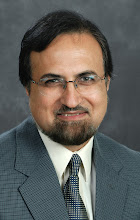I invite you to imagine a world without ‘dementia’. It is not that I have found a cure for all so-called dementias, or discovered a strategy to prevent them in the future. I am referring to the term ‘dementia’ (from Latin demens, meaning without mind) which has done much disservice to patients and physicians for far too long [1]. Should it not follow ‘neurosis’ into classificatory oblivion?
Most clinicians and researchers accept that neurocognitive disorders lie on a continuum, ranging from very mild impairment almost indistinguishable from normal aging to severe impairment characterized by complete loss of independent function. At what point does one begin to call such impairment ‘dementia’ and why? The general rule followed by clinicians is the presence of ‘significant impairment in social or occupational functioning’ due to decline in cognitive functions such as memory. This is a very subjective determination, especially in the early stages when the decline is very mild. With the same level of cognitive impairment, a 70-year-old man who is still employed but struggling with his job is likely to receive a diagnosis of dementia, whereas his retired friend will often escape the diagnosis. Admittedly, the consequences of the diagnosis are different in the two men, but it does serve to highlight the subjective nature of this diagnosis, an inappropriate situation for a disorder rooted in biology. The ‘impaired functioning’ criterion has also resulted in a threshold effect on the diagnosis, which may be one reason why a high intellectual level is suggested to be protect against dementia, mostly because such an individual has ‘further to fall’ before a dementia diagnosis is appropriate.
There are many different definitions of dementia, and unfortunately the different sets of criteria have poor agreement with each other. Erkinjuntti and his colleagues [1] applied various definitions of dementia to the Canadian Study of Health and Aging, and the proportion of individuals with dementia varied from 3.1% to 29.1% depending upon the definition used.
Alzheimer’s disease (AD) is the most common cause of dementia in the elderly, but the term dementia does much disservice to AD itself. As the focus is shifting toward preventing Alzheimer’s, it has become important to recognize the disease early, i.e. at the stage when cognitive impairment is mild and dementia, by its current criteria, cannot be diagnosed. One should therefore not have to wait for dementia before the diagnosis of AD, and for that matter vascular cognitive impairment or fronto-temporal degeneration, but the continuing presence of ‘dementia’ serves to delay the diagnosis unnecessarily.
The definition of dementia has created uncertainty for some other neuropsychiatric disorders. A useful example is alcohol-related brain damage. Most investigators agree that alcohol is an important cause of memory and frontal-executive dysfunction, but considerable debate has raged whether alcohol causes dementia. While some authors have suggested that alcohol-induced dementia is relatively common, others have argued against its acceptance as an entity until a definitive neuropathological basis was established [3]. The debate distracts from the fact that alcohol is responsible for much cognitive dysfunction in society, and has hindered the conduct of treatment studies in this field. Traumatic brain damage is another instance of the difficulties in applying the dementia concept.
Not only is the term dementia limiting in its scope, it has a pejorative connotation in its general usage. The Concise Oxford Dictionary describes the meaning of ‘demented’ as ‘driven mad, crazy’, and the term is commonly used as a form of insult. Its use by the medical profession arouses great anxiety in the patients, evoking images of extreme disability and dependence. The diagnosis has serious consequences in terms of a persons’ competence in employment, legal transactions, driving and even the conduct or ordinary activities of living, far beyond what might be immediately suggested. The diagnosis of dementia may, therefore, become a cross for the patient and the family to bear.
I conclude by suggesting that the limitations and disadvantages of dementia outweigh any usefulness that remains in the term, and it is time that we abandoned it. Admittedly, it has been used for such a long period and has been the subject of vast literature and mythology that it will leave a major void. How will this be filled?
We know from the demise of ‘neurosis’ that terms with a long history can be abandoned, and the field can move on and flourish in the process. Some inheritors of the legacy of dementia are obvious. AD, Huntington’s disease, prion disease, fronto-temporal degeneration and cortical Lewy body disease, all causes of dementia, are established as diseases in their own rights and do not require the appellation of ‘dementia’. Terms such as Neurocognitive Disorder (4) have been suggested to capture the fact that cognitive deficits lie on a spectrum and the clinician should not be constrained by the stigma of diagnosing dementia to be able to diagnose a Neurocognitive Disorder and institute the best available treatment. Stop diagnosing people with dementia, and it will gradually fade away into history.
References:
1. Sachdev P. Is it time to retire the term ‘dementia’? J Neuropsychiatry & Clin Neurosci 2000; 12:276-279.
2. Erkinjuntti T, Ostybe T, Steenhuis R, Hachinski V. The effect of different diagnostic criteria on the prevalence of dementia. N Engl J Med 1997; 337:1667-74.
3. Lishman WA Alcohol and the brain. Br J Psychiatry 1990; 156:635-644.
4. Sachdev P. Vascular cognitive disorder. Intern J Geriatric Psychiatry 1999; 14: 402-403.
Thursday, January 28, 2010
Subscribe to:
Posts (Atom)
